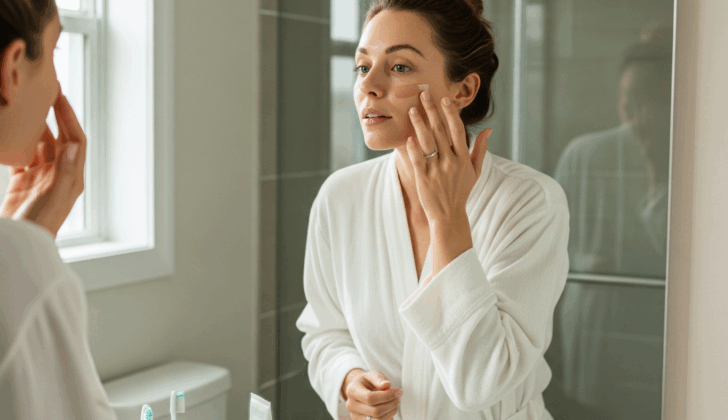We’ve all been told to wear sunscreen daily to protect our skin from sun damage. But not all sunscreens are created equal. While traditional formulas protect against UV rays, tinted sunscreens are now being recognized by dermatologists as a superior choice for overall skin health.
So, what’s the secret behind their effectiveness? In this article, we’ll break down how tinted sunscreens work, why they go beyond standard formulas, and why adding one to your skincare routine might be one of the best beauty and health decisions you can make.
How Sunscreen Works
Regular sunscreen shields your skin primarily from ultraviolet A (UVA) and ultraviolet B (UVB) rays. These rays are responsible for premature aging, sunburns, and an increased risk of skin cancer.
-
UVB rays: Cause surface damage and sunburn.
-
UVA rays: Penetrate deeper, leading to wrinkles, sagging, and long-term DNA damage.
But here’s the catch: even the best broad-spectrum sunscreens don’t block everything.
The Hidden Threat: Visible Light and Infrared
Beyond UVA and UVB, the sun also emits visible light (the light we can see) and infrared radiation (heat). Research shows that visible light—especially high-energy blue light—can cause pigmentation problems like melasma, post-inflammatory hyperpigmentation, and uneven skin tone.
Unfortunately, traditional sunscreens without tint do little to protect against this. That’s where tinted sunscreens stand out.
What Makes Tinted Sunscreens Different?
Tinted sunscreens contain iron oxides, natural pigments that give the product its skin-tone shade. These pigments do more than just help the sunscreen blend better with skin—they provide broad-spectrum coverage against visible light in addition to UV.
This means tinted sunscreens protect against:
-
UVA rays
-
UVB rays
-
Visible light (especially blue light from the sun and even digital devices)
That added layer of defense makes them a superior option, particularly for people with medium to darker skin tones who are more prone to pigmentation issues.
Benefits of Tinted Sunscreens
1. Stronger Protection Against Pigmentation
Tinted formulas help prevent stubborn dark spots, melasma, and hyperpigmentation, offering an advantage over untinted sunscreens.
2. Better Cosmetic Elegance
Instead of leaving behind a white cast, tinted sunscreens tend to blend into skin more naturally, doubling as a light foundation or BB cream substitute.
3. Digital Light Defense
While your phone or laptop doesn’t tan you, blue light from devices may worsen pigmentation over time. Iron oxides provide an added barrier.
4. Improved Compliance
People are more likely to apply enough sunscreen—and reapply it—if it looks and feels good on the skin. Tinted versions often win in this category.
Who Should Consider Tinted Sunscreen?
-
Anyone with pigmentation concerns (melasma, acne scars, age spots)
-
Medium to darker skin tones prone to uneven tone
-
People spending long hours on screens
-
Anyone who dislikes the white cast of mineral sunscreens
Of course, tinted sunscreen benefits everyone—but for these groups, it can be especially transformative.
How to Choose and Use Tinted Sunscreen
-
Look for mineral-based formulas with zinc oxide or titanium dioxide plus iron oxides.
-
Pick a tint that matches your undertone—many brands now offer multiple shades.
-
Apply generously and evenly—don’t skimp!
-
Reapply every 2 hours when outdoors for maximum effectiveness.
-
Pair with other sun-safe habits like hats and shade for all-around protection.
What Science Says
Dermatology research increasingly supports tinted sunscreens as the gold standard for people battling hyperpigmentation. Clinical trials show they significantly reduce recurrence of melasma compared to standard sunscreen alone.
This science-backed edge explains why dermatologists often recommend tinted versions as part of medical treatment plans for pigmentation disorders.
Final Thoughts
The secret to tinted sunscreen’s superiority lies in its extra layer of defense—protecting skin not just from UVA and UVB rays, but also from visible light that contributes to pigmentation and premature aging.
If you’ve been frustrated by uneven skin tone or just want the best defense against sun and screen damage, switching to a tinted sunscreen may be the smartest move for your skin.
Protect, perfect, and glow—now that’s superior.












